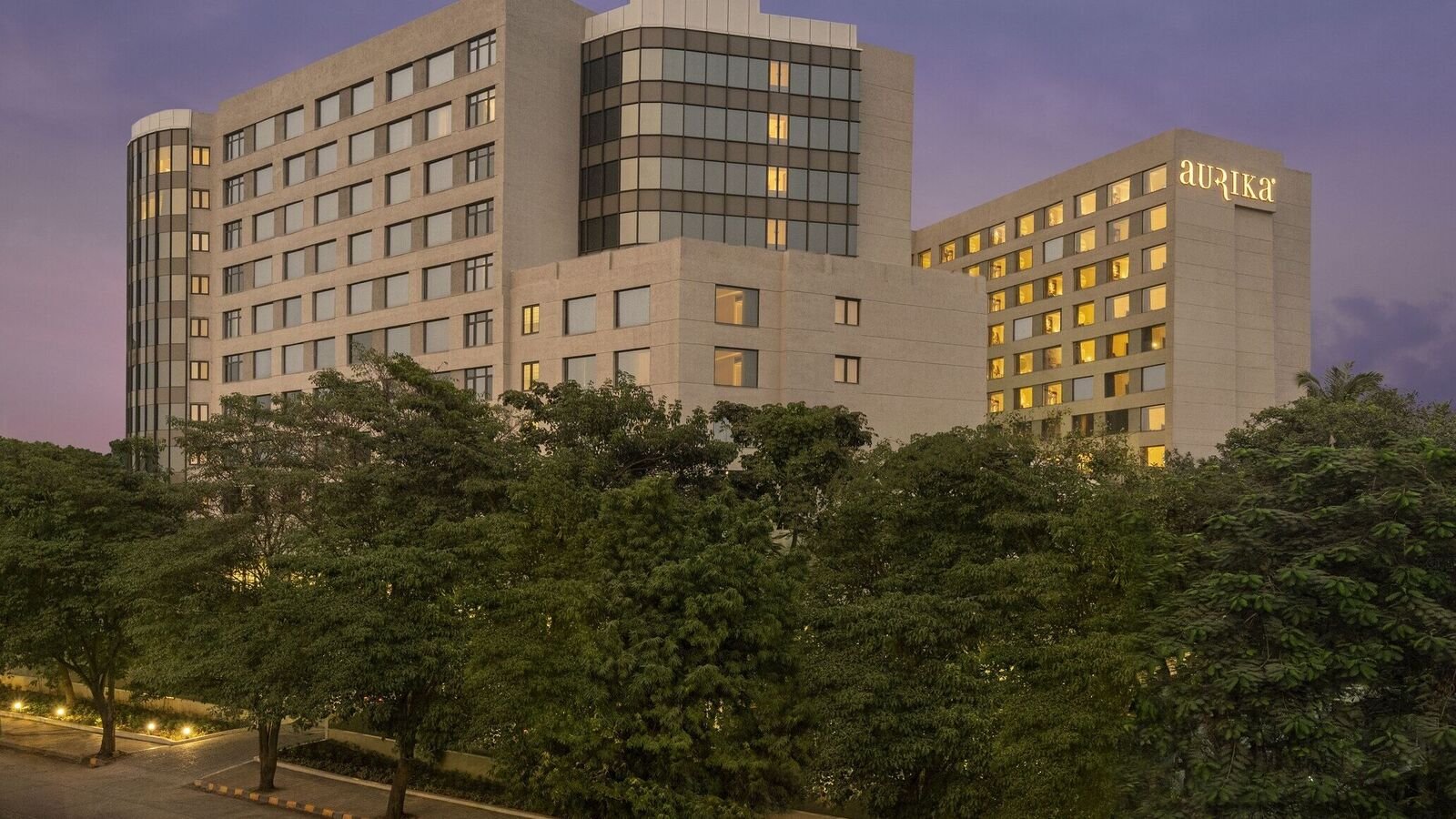Hotels & Accommodations
Will AI Make Hotel Websites Obsolete? |

By Gavi Shohet and Orit Naomi, HTN staff writers – 8.8.2025
As generative AI and autonomous digital agents increasingly shape how travelers plan and book trips, the role of the hotel website is entering a period of uncertainty. Once the cornerstone of direct bookings and brand storytelling, the traditional website is now facing serious competition. This competition is coming not from OTAs but from a new breed of AI-powered tools designed to bypass the front end of the internet altogether.
The rise of so-called agentic AI systems capable of planning, decision-making, and booking on behalf of users is challenging the value of hotel websites as both information sources and transaction platforms. AI agents can already search, compare, and book hotels without ever “visiting” a website in the human sense. Instead, they rely on APIs, connectivity protocols, and machine-readable data to access room availability, rates, and inventory.
In this model, hotel websites may no longer be the first or even second point of contact between a guest and a property. That contact increasingly happens between machines.
According to recent data from VertoDigital, only about 25 percent of AI-generated hotel answers are currently sourced from official hotel websites. The rest comes from public databases, OTAs, and proprietary information warehouses. As personal AI agents like ChatGPT Operator, Google Gemini, and Microsoft Copilot gain functionality, they will pull ARI (Availability, Rates, and Inventory) directly from connected systems via middleware or APIs. In some cases, AI agents are already skipping the website entirely and negotiating bookings agent-to-agent.
The implications for hotels are significant. In this fast-emerging landscape, the website becomes less a destination and more a data source. Unless hotels build and maintain well-structured, accessible, and accurate digital assets, AI systems may favor more robust third-party sources, further shifting visibility and bookings to OTAs.
That doesn’t mean websites are going away tomorrow. For many properties, especially independent and boutique hotels, the website remains essential for brand storytelling, rich visuals, and creating emotional appeal. These are elements that AI summaries and OTA listings typically lack. Hotel websites also still serve practical roles for compliance, localization and complex bookings.
However, as AI booking agents mature, traditional web interfaces are losing prominence. Travel planning is increasingly embedded in AI ecosystems that don’t involve visual browsing. Instead of a guest searching Google and clicking through to a hotel’s site, they’re prompting their AI to “book a pet-friendly hotel with a spa under $300 near the beach” and relying on the system to deliver a vetted option booked automatically in the background.
Hotel technology firms are beginning to respond. New booking platforms are being designed from the ground up with agentic AI in mind. DirectBooker, an AI connectivity startup backed by former Tripadvisor and Google Travel executives, is working to plug hotel ARI directly into tools like ChatGPT, enabling bookings without the user ever seeing the hotel’s own website.
Meanwhile, leading hotel chains and tech vendors are investing in API-first, AI-native architecture. This includes structured content optimized for generative engine optimization (GEO), dynamic data layers that interact with AI systems, and real-time bundling of offers through intelligent pricing engines.
Still, the level of preparedness varies widely across the industry. Many hotels, particularly smaller properties or those relying on legacy systems, lack the infrastructure to participate in this new ecosystem. And if a hotel’s ARI isn’t machine-accessible, AI agents may simply skip over it.
For now, websites serve both human guests and machine agents. But that dual role is becoming more demanding. Static brochure sites will not be enough. Instead, hotels need digital platforms that are fast, intelligent, integrated and API-connected, ones that are capable of serving both as a branding tool for humans and a structured data hub for machines.
The long-term risk is not that hotel websites disappear altogether, but that they fade into irrelevance as bookings shift to channels where hotels have less control and more competition. Without investment in the right infrastructure, hotels could find themselves invisible to the very systems guiding future travel decisions.
While AI won’t eliminate hotel websites any time soon, it is rapidly rewriting the rules of discovery and distribution. Hoteliers who want to maintain a direct connection to guests will need to adapt accordingly.
Related
Hotels & Accommodations
Study: Hiring people with disabilities can help hotels

The company’s global pipeline exceeded 93,000 rooms, including nearly 77,000 in the U.S. Its global system size grew 2.1 percent, including 3 percent growth in the upscale, extended-stay and midscale segments, Choice said in a statement.
“Choice Hotels delivered another quarter of record financial performance despite a softer domestic RevPAR environment, underscoring the successful execution and diversification of our growth strategy,” said Patrick Pacious, president and CEO. “We are especially pleased with our strong international performance, where we have achieved significant growth and accelerated global expansion through a recent strategic acquisition, the signing of key partnerships, and entry into new markets. With more diversified growth avenues, enhanced product quality and value proposition driving stronger customer engagement and a leading position in the cycle-resilient extended-stay segment, we remain well-positioned to deliver long-term returns for all our stakeholders.”
Domestic RevPAR declined 2.9 percent, reflecting macroeconomic conditions and a difficult comparison with 2024 due to the timing of Easter and eclipse-related travel, the statement said. Excluding those effects, RevPAR fell approximately 1.6 percent. Meanwhile, the domestic extended-stay portfolio outperformed the broader lodging industry by 40 basis points in RevPAR, while the economy transient portfolio exceeded its chain scale by 320 basis points.
Adjusted EBITDA rose 2 percent to $165 million, or $167 million excluding a $2 million operating guarantee related to the Radisson Hotels Americas acquisition. Adjusted diluted EPS increased 4 percent to $1.92, the statement said.
Expansion and development
The domestic extended-stay portfolio grew 10.5 percent year over year, with a pipeline of nearly 43,000 rooms as of June 30, Choice said. The combined domestic upscale, extended-stay and midscale portfolio grew 2.3 percent. WoodSpring Suites expanded 9.7 percent to nearly 33,000 rooms and ranked first in guest satisfaction among economy extended-stay brands in the J.D. Power 2025 study. The domestic economy transient pipeline increased 8 percent to more than 1,700 rooms.
Choice acquired the remaining 50 percent interest in Choice Hotels Canada for approximately $112 million in July, funded through cash and credit. The deal expanded its Canadian brand portfolio from eight to 22 and added 327 properties and more than 26,000 rooms. The business is expected to contribute approximately $18 million in EBITDA in 2025.
International activity included a renewed master franchise agreement with Atlantica Hospitality International in Brazil for more than 10,000 rooms; a direct franchise deal with Zenitude Hotel-Residences in France, which nearly tripled room count and two agreements with SSAW Hotels & Resorts in China. These include a 9,500-room distribution deal for 2025 and a master franchise agreement projected to add 10,000 rooms over five years.
Global net rooms for upscale brands increased 14.7 percent year over year, the statement said. The pipeline for these brands rose 7 percent since March 31 to nearly 29,000 rooms.
2025 outlook
Choice revised its RevPAR outlook to reflect more moderate domestic expectations due to macroeconomic conditions, the statement said. The adjusted EBITDA forecast includes a $6 million contribution from the Choice Hotels Canada acquisition for the remainder of 2025. It also reflects the $2 million Radisson-related operating guarantee payment incurred in the second quarter.
Net income guidance was lowered to a range of $261 million to $276 million, down from $275 million to $290 million. Adjusted net income remains at $324 million to $339 million.
Domestic RevPAR growth was revised to between negative 3 percent and flat, compared to the earlier range of negative 1 percent to positive 1 percent. The global net system rooms growth projection remains at approximately 1 percent.
In May, Choice reported 2.3 percent year-over-year growth in domestic RevPAR for the first quarter.
Hotels & Accommodations
Vacation rentals outpacing hotels across US

The US vacation rental market is pulling ahead of the traditional hotel sector.
While much of the travel sector contended with shorter booking windows and uneven demand in Q2, vacation rentals have proved resilient, a new report suggests.
According to the Q2 2025 Vacation Rental Market Index by Key Data, STRs outperformed hotels in every region across the US, with an average RevPAR (revenue per available rental) advantage of 9 percentage points1.
Key Data is a major provider of real-time market intelligence and benchmarking for the global short-term rental industry.
The data covers 13 million listings, and signals the STR sector is evolving.
Still, its performance isn’t evenly distributed. While many operators are thriving, others are feeling the strain.
Key Data’s analysis reveals a widening divide between high-performing and under-pressure regions, and between operators actively adapting to change and those falling behind.
Several regions posted impressive year-over-year growth in RevPAR, including:
Mid-Atlantic: +11% RevPAR YoY, driven by a +10% increase in occupancy
New England: +10% RevPAR, bolstered by seasonal demand and premium pricing
Rocky Mountains: +9% RevPAR, sustained by consistent traveler interest
Hawaiian Islands: +6% RevPAR, maintaining strong rate integrity in a competitive climate
In contrast, the Southwest saw the steepest drop, with RevPAR falling -4% YoY and new supply hindering rate growth.
The report suggests that even the strongest markets aren’t immune to emerging pressures.
Forward occupancy for September is down 11% year over year, it finds, and booking windows have shortened across key summer months.
While RevPAR remains strong in several regions, the landscape is becoming more fragmented.
Melanie Brown, VP of Data Insights at Key Data, said: “Performance is no longer just about location or seasonality. We’re seeing the STR sector evolve. Operators who succeed in this next phase won’t be the biggest, they’ll be the most responsive.”
The ability to track booking behavior, adjust pricing dynamically, and execute quickly is now what separates growth from stagnation.”
Related News Stories: GHA Discovery – TravelMole
Hotels & Accommodations
Lemon Tree’s Keswani to transition from dual role at top in succession planning

Lemon Tree Hotels Ltd’s chairman and managing director Patanjali G. Keswani will become executive chairman of both LTH and its subsidiary Fleur Hotels as part of a leadership change effective 1 October.
Lemon Tree informed the BSE on Friday that the management change was part of its long-term succession plan aimed at strengthening leadership.
The company announced the appointment of Neelendra Singh, former managing director of Adidas India, as the managing director of Lemon Tree Hotels, effective 1 October.
Saurabh Shatdal, managing director at real estate consultancy Cushman & Wakefield, will take over as managing director and chief executive of Fleur Hotels, which is expected to be listed on the public markets by the end of next year.
Chief financial officer Kapil Sharma will join Lemon Tree’s board as executive director while continuing in his role as the hotel operator’s finance head.
Lemon Tree Hotels, founded by Keswani, opened its first hotel in 2004 and has a portfolio of more than 230 hotels. It also has 110 hotels in the pipeline both in India and internationally.
The hotel group, which owns, leases, operates, and franchises hotels across segments, has seven brands including Aurika Hotels and Resorts, Lemon Tree Premier, Lemon Tree Hotels, Fleur Hotels, Red Fox Hotels, and the Keys brand.
Keswani, 66, speaking with Mint in May, said Lemon Tree Hotels expected strong revenue growth this fiscal year, driven by a rebound in business travel, higher room rates, and expansion across hotel segments.
Lemon Tree was prioritising the public market listing of Fleur Hotels by December 2026 to go debt-free, he said, adding that post the listing the subsidiary is expected to generate more than ₹700 crore in annual earnings before interest, taxes, depreciation, and amortization.
The company also aims to capture the under-penetrated market of sub-40-room properties in smaller cities. This is part of a broader strategy to tap India’s growing demand for branded accommodation, which is projected to rise from 200,000 rooms currently to 300,000 by 2029-30.
Despite a brief dip in demand during the April-June first quarter due to the Pahalgam terror attack and a resurgence of covid, Keswani said he expected mid-teen revenue growth for FY26 supported by rising domestic travel and Lemon Tree’s growing footprint.
A seasonal boost
Prashant Biyani, vice president for institutional equity research at Elara Capital, said the management changes at Lemon Tree bring greater clarity for the hotel company beyond Keswani.
“Having separate managing directors for each entity will help ensure healthy growth for both,” he said, adding that investors would be keen to see a clear growth strategy for Fleur Hotels ahead of its market listing in 12-15 months.
Despite softer demand for the hotel sector in the first quarter, Biyani expects occupancy to grow 1-1.5 percentage points from a year earlier in the ongoing second quarter.
Hotels are expected to charge 10-12% more for rooms on average, which combined with the increased occupancy is expected to boost the industry’s overall revenue per available hotel room by 12-14% in FY26, according to Elara Capital.
In the June quarter, Lemon Tree’s revenue from operations surged to ₹315.77 crore from ₹268.01 crore in the same year-earlier quarter. Net profit jumped to ₹48.10 crore from ₹20.11 crore a year ago.
Travel to northern cities such as Chandigarh, Amritsar, Srinagar, and Jodhpur was impacted by rising border tensions in early May, while the Air India plane crash in June triggered widespread flight cancellations.
This led to lower hotel bookings in cities such as Goa, Jaipur, Mumbai, Delhi, and Bengaluru that are heavily dependent on air connectivity.
Despite these setbacks, Elara remains optimistic about the hotel industry’s prospects in the second quarter owing to seasonal demand, long weekends, corporate events in Mumbai, and Kerala’s Onam festival.
Among listed hotel players, Lemon Tree Hotels will be a tactical stock pick for the second quarter, Biyani said.
Lemon Tree Hotels ended Friday’s trading on NSE 0.76% lower at ₹142.99 per share, while the Nifty 50 fell 0.95%.
-

 Brand Stories3 weeks ago
Brand Stories3 weeks agoBloom Hotels: A Modern Vision of Hospitality Redefining Travel
-

 Brand Stories2 weeks ago
Brand Stories2 weeks agoCheQin.ai sets a new standard for hotel booking with its AI capabilities: empowering travellers to bargain, choose the best, and book with clarity.
-

 Destinations & Things To Do3 weeks ago
Destinations & Things To Do3 weeks agoUntouched Destinations: Stunning Hidden Gems You Must Visit
-

 Destinations & Things To Do2 weeks ago
Destinations & Things To Do2 weeks agoThis Hidden Beach in India Glows at Night-But Only in One Secret Season
-

 AI in Travel3 weeks ago
AI in Travel3 weeks agoAI Travel Revolution: Must-Have Guide to the Best Experience
-

 Brand Stories1 month ago
Brand Stories1 month agoVoice AI Startup ElevenLabs Plans to Add Hubs Around the World
-

 Brand Stories4 weeks ago
Brand Stories4 weeks agoHow Elon Musk’s rogue Grok chatbot became a cautionary AI tale
-

 Brand Stories2 weeks ago
Brand Stories2 weeks agoContactless Hospitality: Why Remote Management Technology Is Key to Seamless Guest Experiences
-

 Asia Travel Pulse1 month ago
Asia Travel Pulse1 month agoLooking For Adventure In Asia? Here Are 7 Epic Destinations You Need To Experience At Least Once – Zee News
-

 AI in Travel1 month ago
AI in Travel1 month ago‘Will AI take my job?’ A trip to a Beijing fortune-telling bar to see what lies ahead | China

You must be logged in to post a comment Login